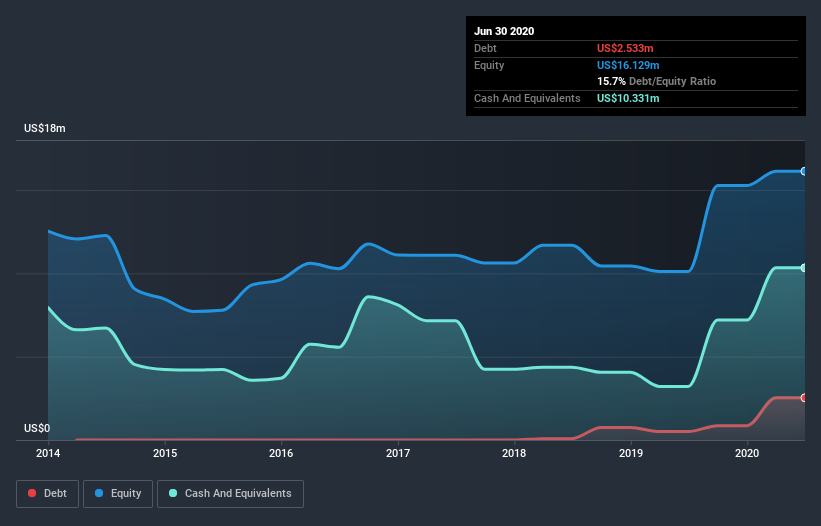Is Cogstate (ASX:CGS) Using Too Much Debt?

The external fund manager backed by Berkshire Hathaway's Charlie Munger, Li Lu, makes no bones about it when he says 'The biggest investment risk is not the volatility of prices, but whether you will suffer a permanent loss of capital.' So it might be obvious that you need to consider debt, when you think about how risky any given stock is, because too much debt can sink a company. We note that Cogstate Limited (ASX:CGS) does have debt on its balance sheet. But is this debt a concern to shareholders?
Why Does Debt Bring Risk?
Debt is a tool to help businesses grow, but if a business is incapable of paying off its lenders, then it exists at their mercy. Part and parcel of capitalism is the process of 'creative destruction' where failed businesses are mercilessly liquidated by their bankers. However, a more common (but still painful) scenario is that it has to raise new equity capital at a low price, thus permanently diluting shareholders. Of course, debt can be an important tool in businesses, particularly capital heavy businesses. The first step when considering a company's debt levels is to consider its cash and debt together.
See our latest analysis for Cogstate
How Much Debt Does Cogstate Carry?
The image below, which you can click on for greater detail, shows that at June 2020 Cogstate had debt of US$2.53m, up from US$505.0k in one year. But it also has US$10.3m in cash to offset that, meaning it has US$7.80m net cash.
A Look At Cogstate's Liabilities
The latest balance sheet data shows that Cogstate had liabilities of US$13.1m due within a year, and liabilities of US$2.38m falling due after that. On the other hand, it had cash of US$10.3m and US$5.13m worth of receivables due within a year. So these liquid assets roughly match the total liabilities.
This state of affairs indicates that Cogstate's balance sheet looks quite solid, as its total liabilities are just about equal to its liquid assets. So it's very unlikely that the US$86.1m company is short on cash, but still worth keeping an eye on the balance sheet. While it does have liabilities worth noting, Cogstate also has more cash than debt, so we're pretty confident it can manage its debt safely. There's no doubt that we learn most about debt from the balance sheet. But it is Cogstate's earnings that will influence how the balance sheet holds up in the future. So if you're keen to discover more about its earnings, it might be worth checking out this graph of its long term earnings trend.
In the last year Cogstate wasn't profitable at an EBIT level, but managed to grow its revenue by 8.5%, to US$24m. That rate of growth is a bit slow for our taste, but it takes all types to make a world.
So How Risky Is Cogstate?
Statistically speaking companies that lose money are riskier than those that make money. And we do note that Cogstate had an earnings before interest and tax (EBIT) loss, over the last year. And over the same period it saw negative free cash outflow of US$2.4m and booked a US$1.3m accounting loss. But at least it has US$7.80m on the balance sheet to spend on growth, near-term. Summing up, we're a little skeptical of this one, as it seems fairly risky in the absence of free cashflow. When analysing debt levels, the balance sheet is the obvious place to start. However, not all investment risk resides within the balance sheet - far from it. To that end, you should learn about the 4 warning signs we've spotted with Cogstate (including 1 which is can't be ignored) .
Of course, if you're the type of investor who prefers buying stocks without the burden of debt, then don't hesitate to discover our exclusive list of net cash growth stocks, today.
This article by Simply Wall St is general in nature. It does not constitute a recommendation to buy or sell any stock, and does not take account of your objectives, or your financial situation. We aim to bring you long-term focused analysis driven by fundamental data. Note that our analysis may not factor in the latest price-sensitive company announcements or qualitative material. Simply Wall St has no position in any stocks mentioned.
Have feedback on this article? Concerned about the content? Get in touch with us directly. Alternatively, email editorial-team@simplywallst.com.

 Yahoo Finance
Yahoo Finance 